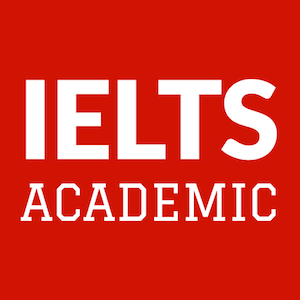The questions below are among those most frequently asked about the Reading module of IELTS. If you are looking for basic information about the structure of the Reading module, you should probably read IELTS Reading: Introduction first.
What is the difference between the General Training Reading module and the Academic Reading module?
The reading passages and questions are easier in the General Training module of IELTS. However, you need to get a higher number of correct answers to achieve the same band score as someone taking the Academic module.
What are the reading passages about?
In the General Training IELTS module, they will usually be informational: the kind of text you would expect to find in a leaflet, newspaper or magazine. In the Academic IELTS module, the passages will cover three diverse academic topics. You do not need any knowledge of these topics before taking the test.
Which should I read first: the passage or the questions?
Generally speaking, it is better to read the passage first to give yourself an idea of the overall topic and organisation of the text. It then becomes much easier to interpret the questions and know where to look for the answers. However, it may be a good idea to look briefly at the question types before you read. If there is a headings matching task, for example, you may be able to do this as you skim-read.
How much time should I spend skim-reading each passage?
You do not want to spend more than five minutes reading a single passage. At this stage, it is not important to understand all the details. You should only be reading for the main idea of each paragraph. If you find you have spent more than five minutes reading a single passage, stop reading and start working on the questions.
What question types are there in IELTS Reading?
Unlike TOEFL, IELTS includes more than just multiple-choice questions. You may have to add match headings to paragraphs, complete sentences or a summary, or match opinions to people mentioned in the text. There are also True/False/Not Given questions which require a detailed understanding of the passage. Each passage will be followed by an average of 13 questions and these will generally be of three to five different types.
How much time should I spend on each question?
Given that you will need up to fifteen minutes of reading time, that leaves you with 45 minutes to answer a total of 40 questions. It is advisable to spend no more than one minute answering each individual question. You can always come back to more difficult questions later.
Can I use a dictionary in IELTS Reading?
I think you already know that the answer to this question is no! You will therefore need a good vocabulary and a range of strategies for guessing the meaning of an unfamiliar word.
How many words do I need to know in order to get a high score in IELTS Reading?
There is no easy answer to this question because regardless of the size of your vocabulary you will almost certainly encounter unfamiliar words in the test. While learning vocabulary will definitely improve your reading speed and your IELTS Reading score, it is also important to be able to look for and recognise definitions, or guess the likely meaning of a word you don’t know.
How are IELTS Reading scores calculated?
You will be given a score out of 40 and this will be converted into an IELTS band score of 0 to 9 according to the IELTS band score calculator. The conversions are different in the Academic and General Training modules.
What IELTS Reading score is required for university entry?
It varies by university and many do not specify a requirement for each module. However, you should be aiming to achieve a score of at least 6 in IELTS Reading (23-29 correct answers) if you intend to study at an English-speaking university. A band score of 5 (16-22 correct answers) may be sufficient for some foundation and presessional English courses.
How can I raise my IELTS Reading score?
Check out other posts about reading on IELTS Academic for advice on reading techniques, vocabulary practice exercises and explanations of the different question types.

